One suspect had surrendered early Thursday, after the worst terrorist attack in France in recent memory claimed 12 lives, while a manhunt for two other suspects continued to unfold.
The attack on the offices of the satirical newspaper Charlie Hebdo in Paris left the country deeply shaken. Three gunmen stormed the newspaper’s offices wearing black ski masks, opened fire with a hail of bullets and hijacked a car to flee the scene.
A spokeswoman for the Paris prosecutor’s office identified the suspect who turned himself in as 18-year-old Mourad Hamyd, the Associated Press reports. A police bulletin early Thursday identified the other two suspects as Saïd and Chérif Kouachi, French brothers in their early 30s.
Thousands gathered for vigils in Paris to honor the victims Wednesday night, following a tense day of lockdown that saw police stationed outside all of the city’s schools, newspapers, train stations and religious sites. The New York Times reported that public schools in Paris were closed, while the U.S. Embassy in Paris said that it would remain open.
Parisians Hold Vigil for Dead in Charlie Hebdo Attack
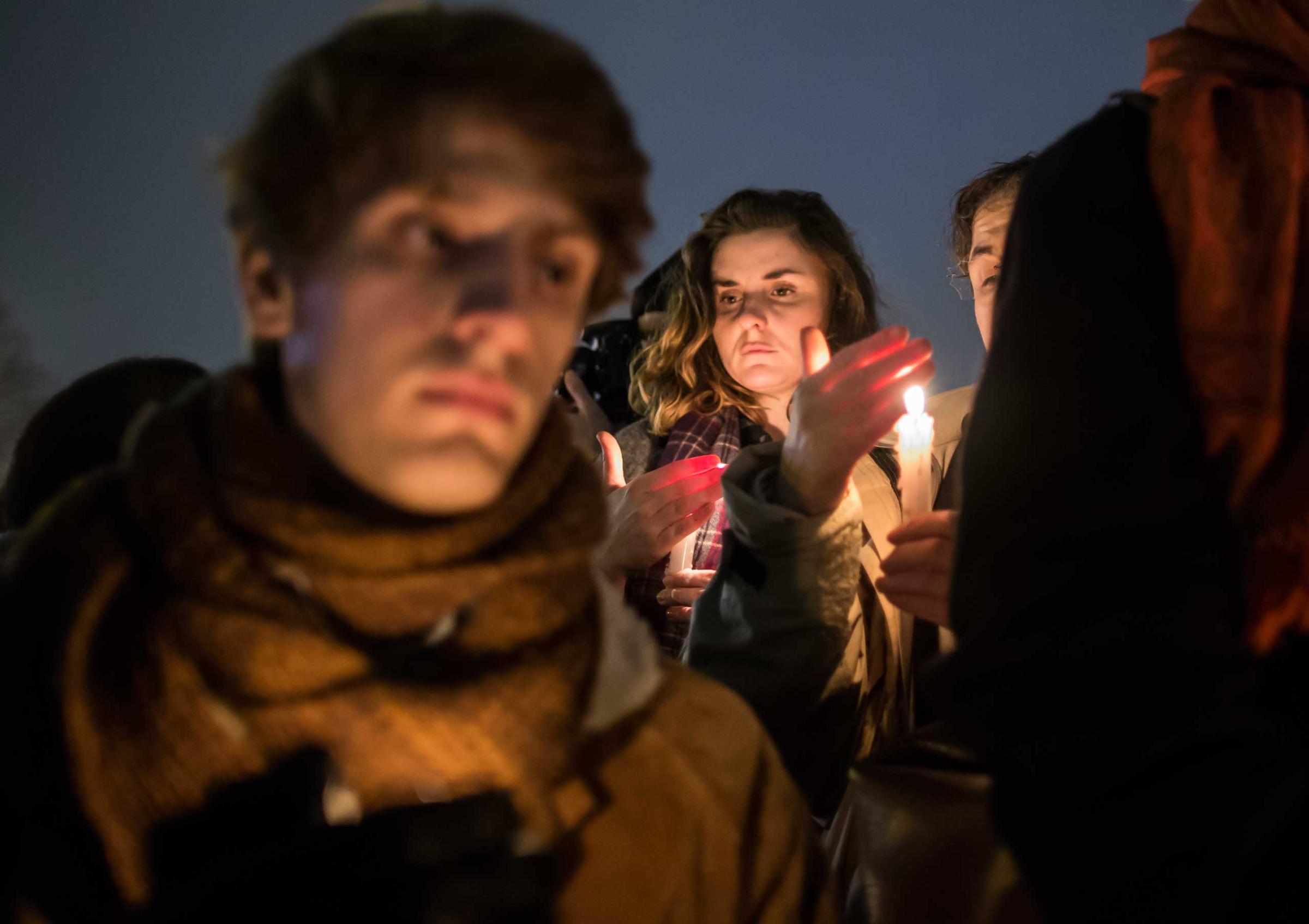
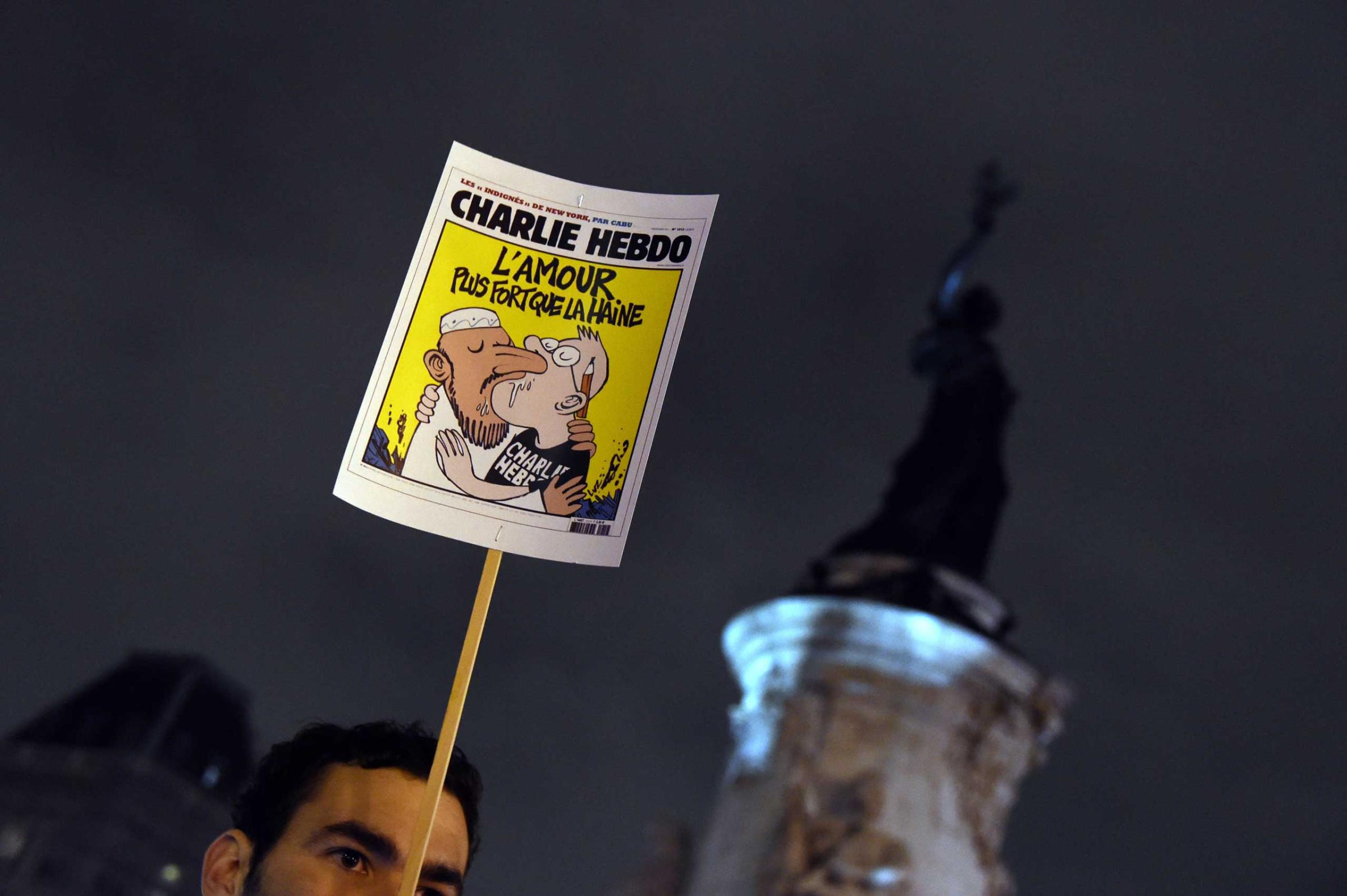
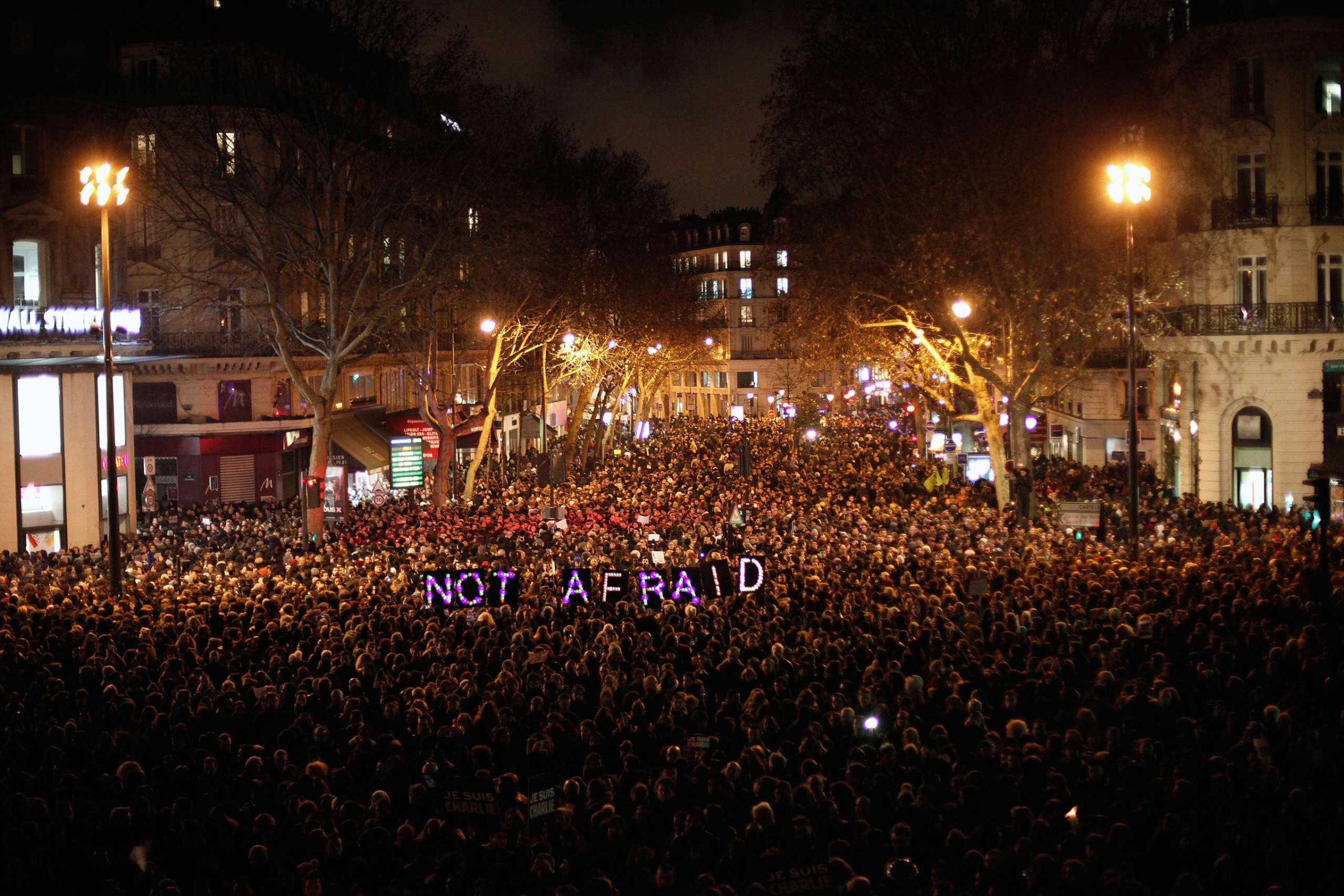
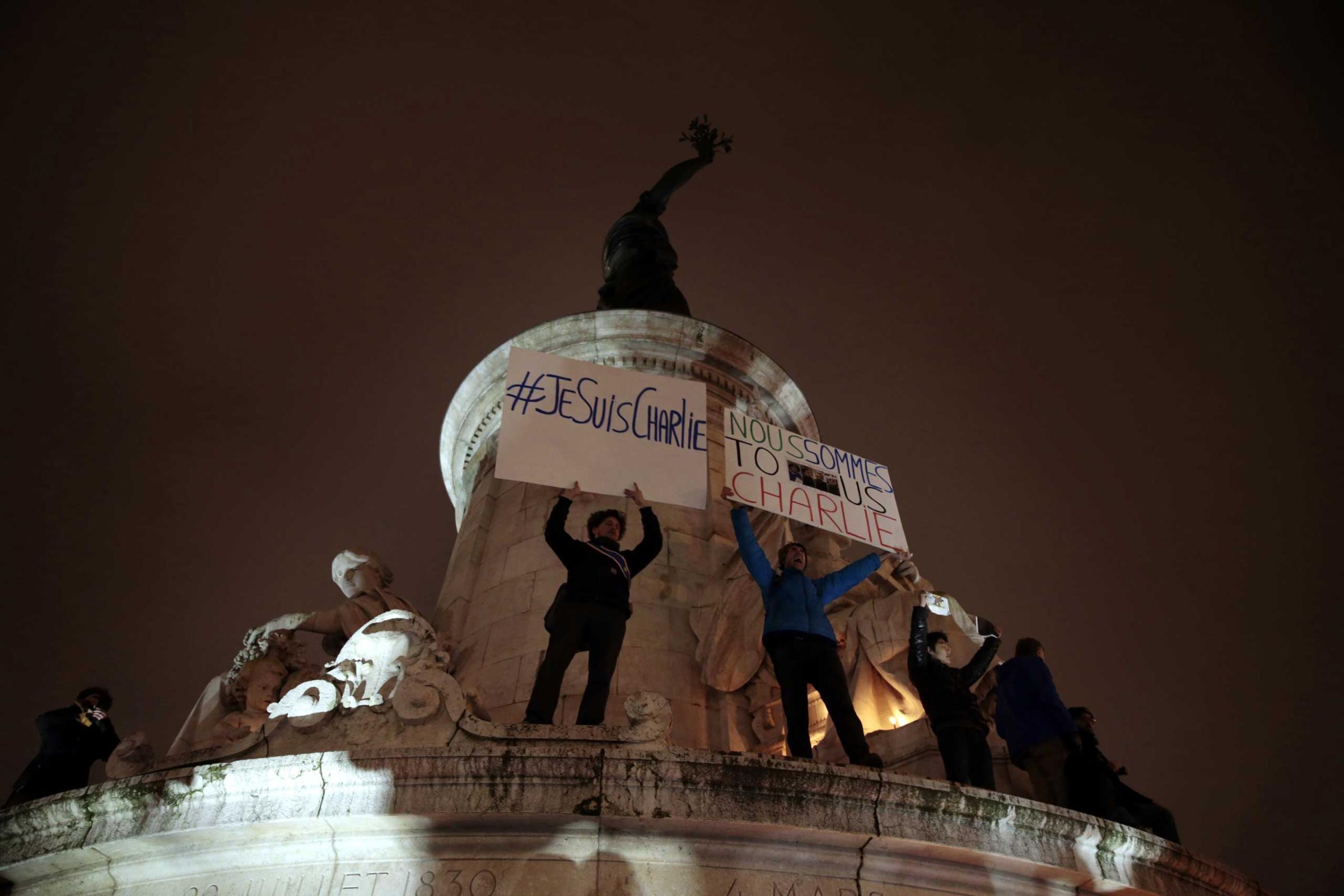
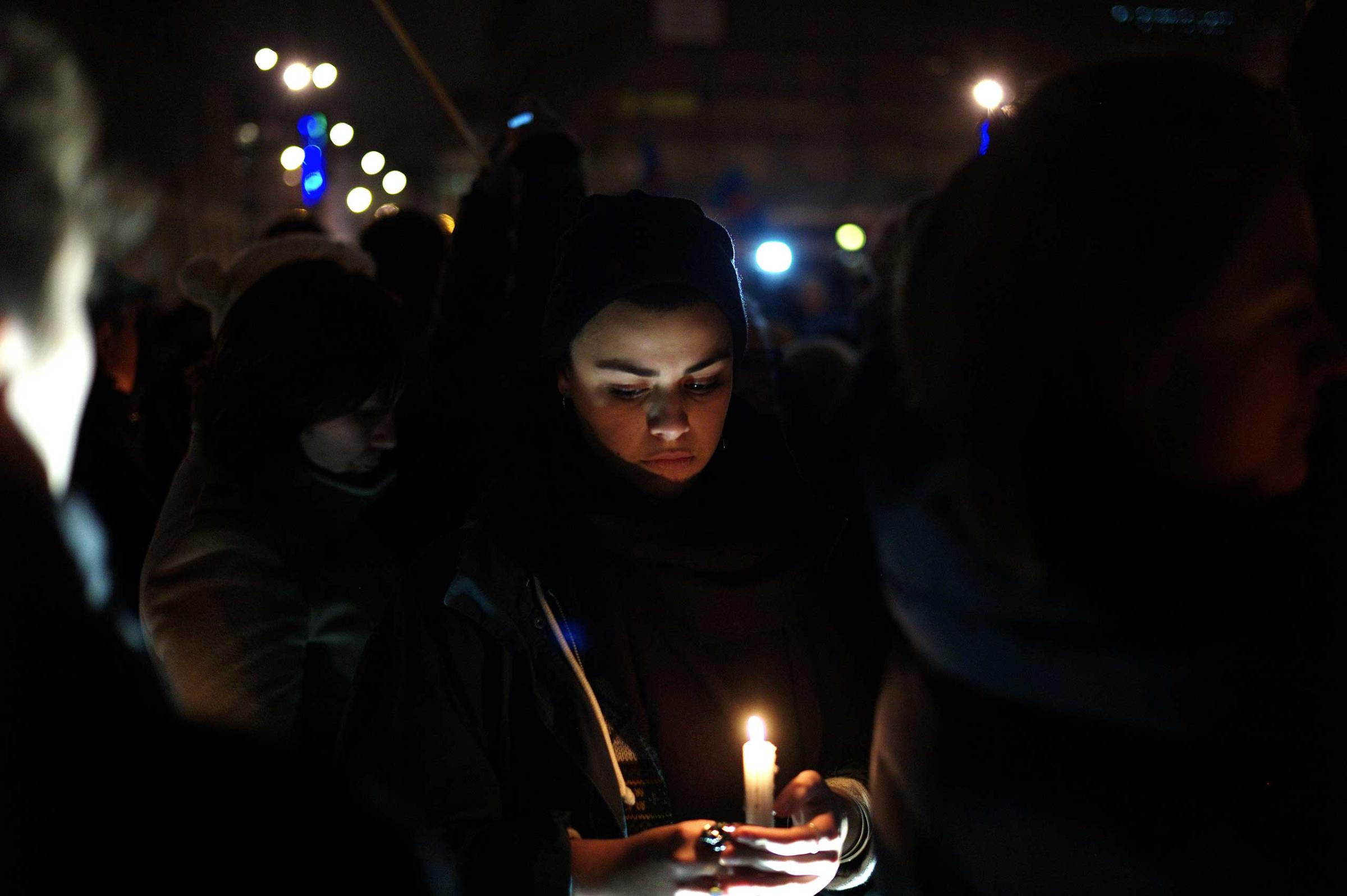
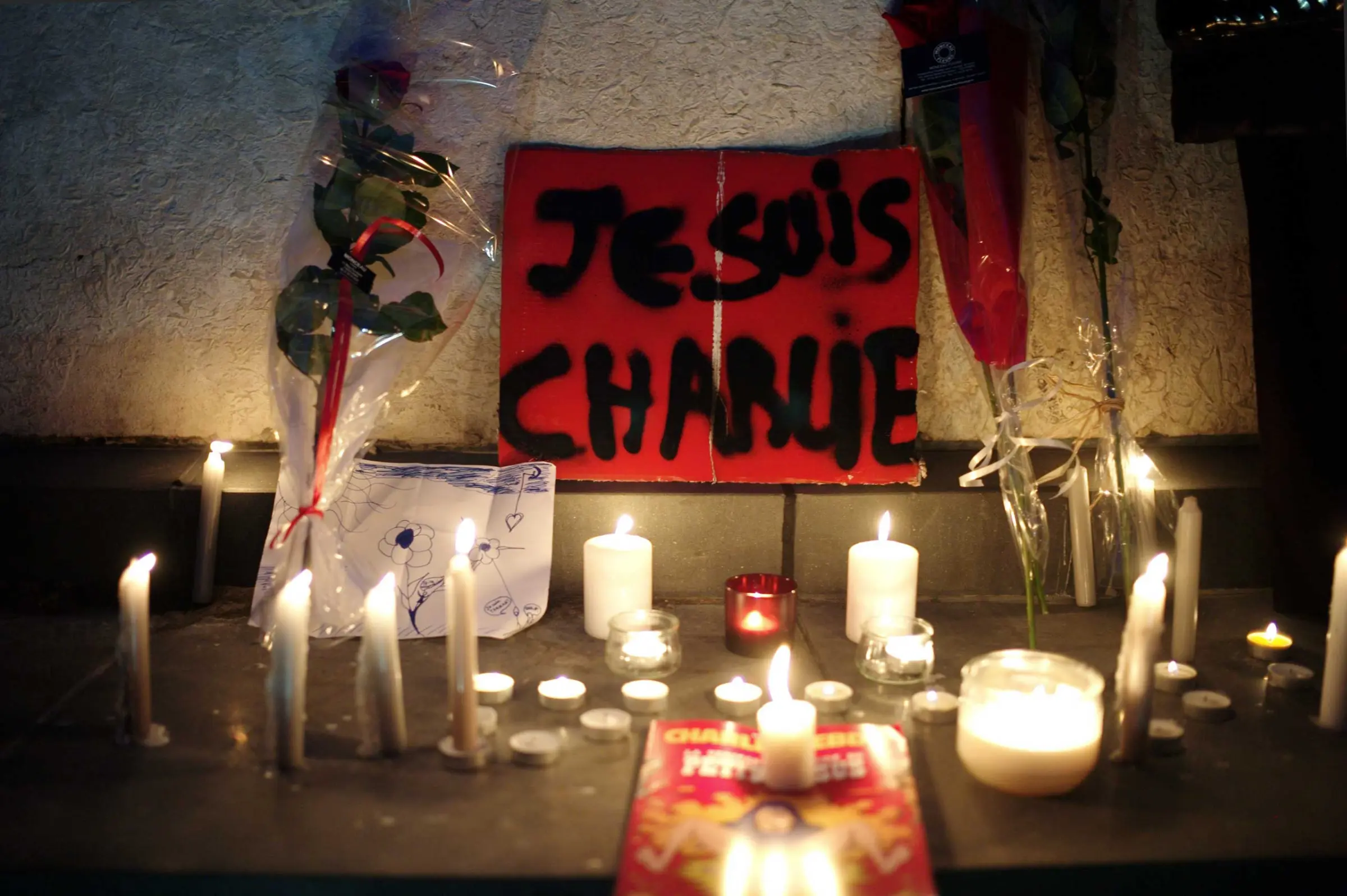
Although no group has yet claimed responsibility for the attacks, suspicions quickly pointed to hard-line Islamist militant groups, which have singled out the newspaper for years in threats.
French newspaper Le Monde, citing an unnamed police source, reported that at least 3,000 officers were involved in the search for those responsible for the shooting. French Interior Minister Bernard Cazeneuve said the military was aiding police, according to the Guardian.
In the horrified aftermath as police were still assessing the carnage, French President François Hollande arrived at the scene of the crime and declared the shootings a terrorist act aiming to undermine France’s constitutional right to freedom of speech. “This was an operation by terrorists against a newspaper that has been threatened several times,” he told reporters on the sidewalk, calling the attack “an act of exceptional barbarism.”
“France today received a shock,” he said. “A newspaper means free speech for journalists.”
Paris Police Respond to Charlie Hebdo Attack
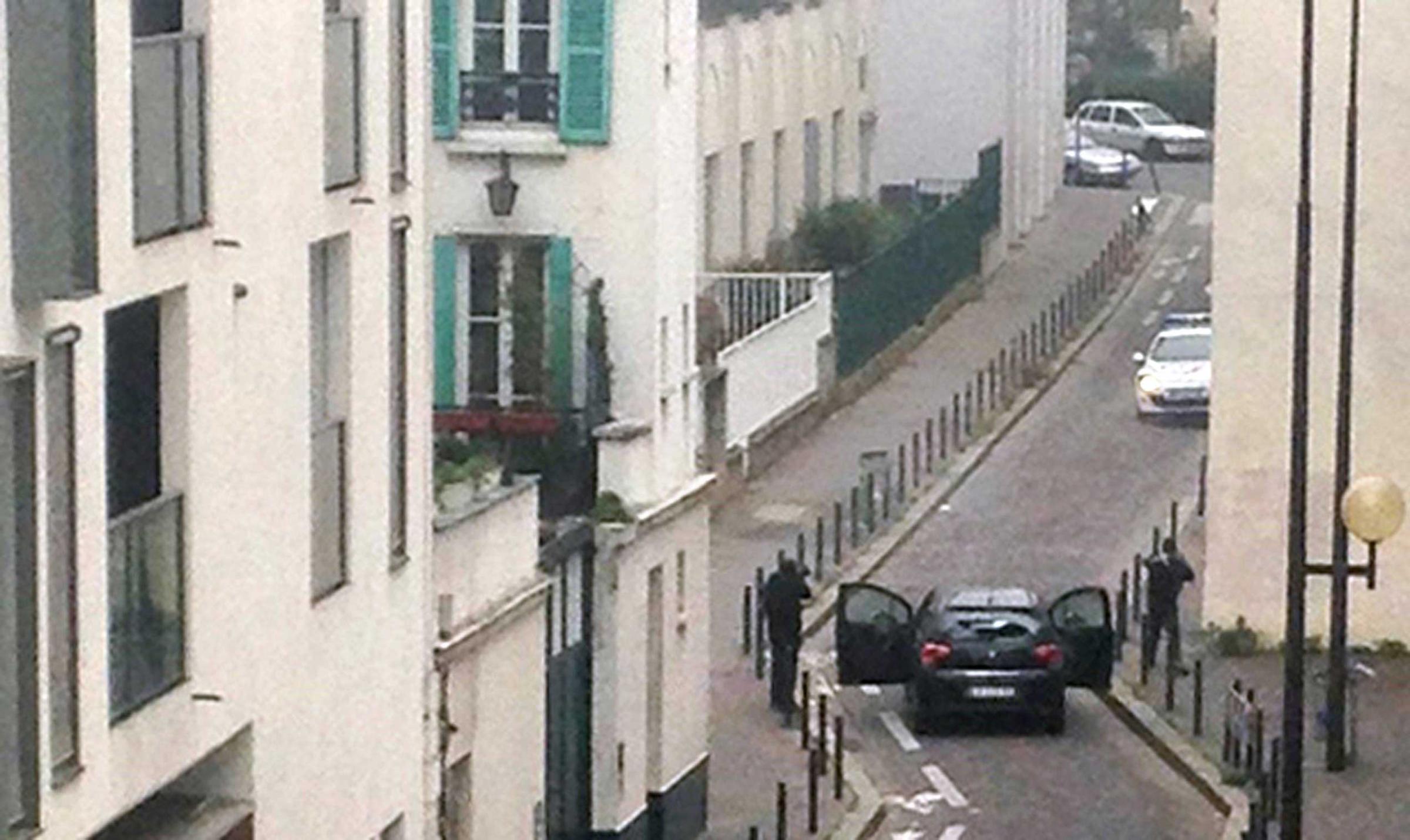
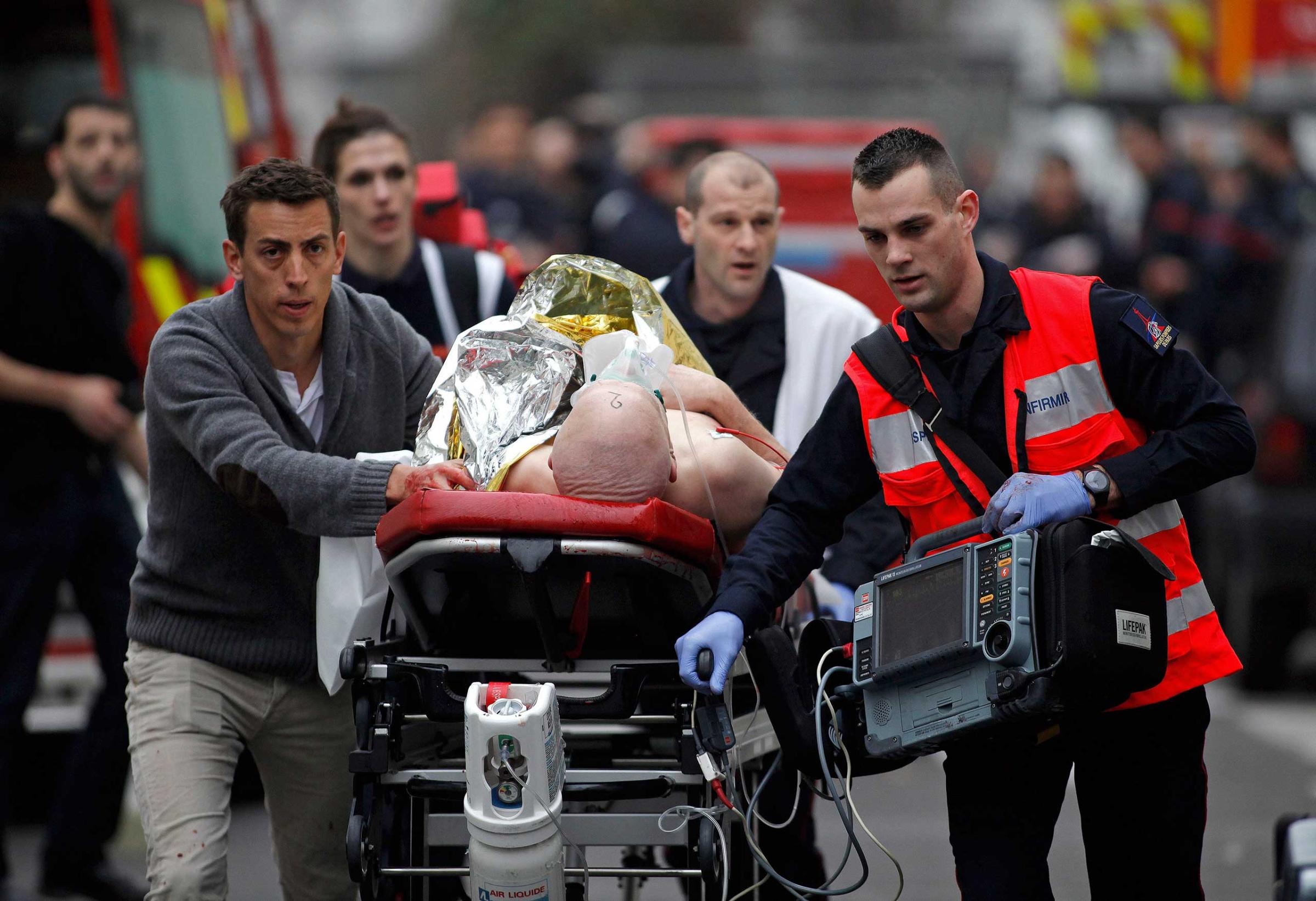
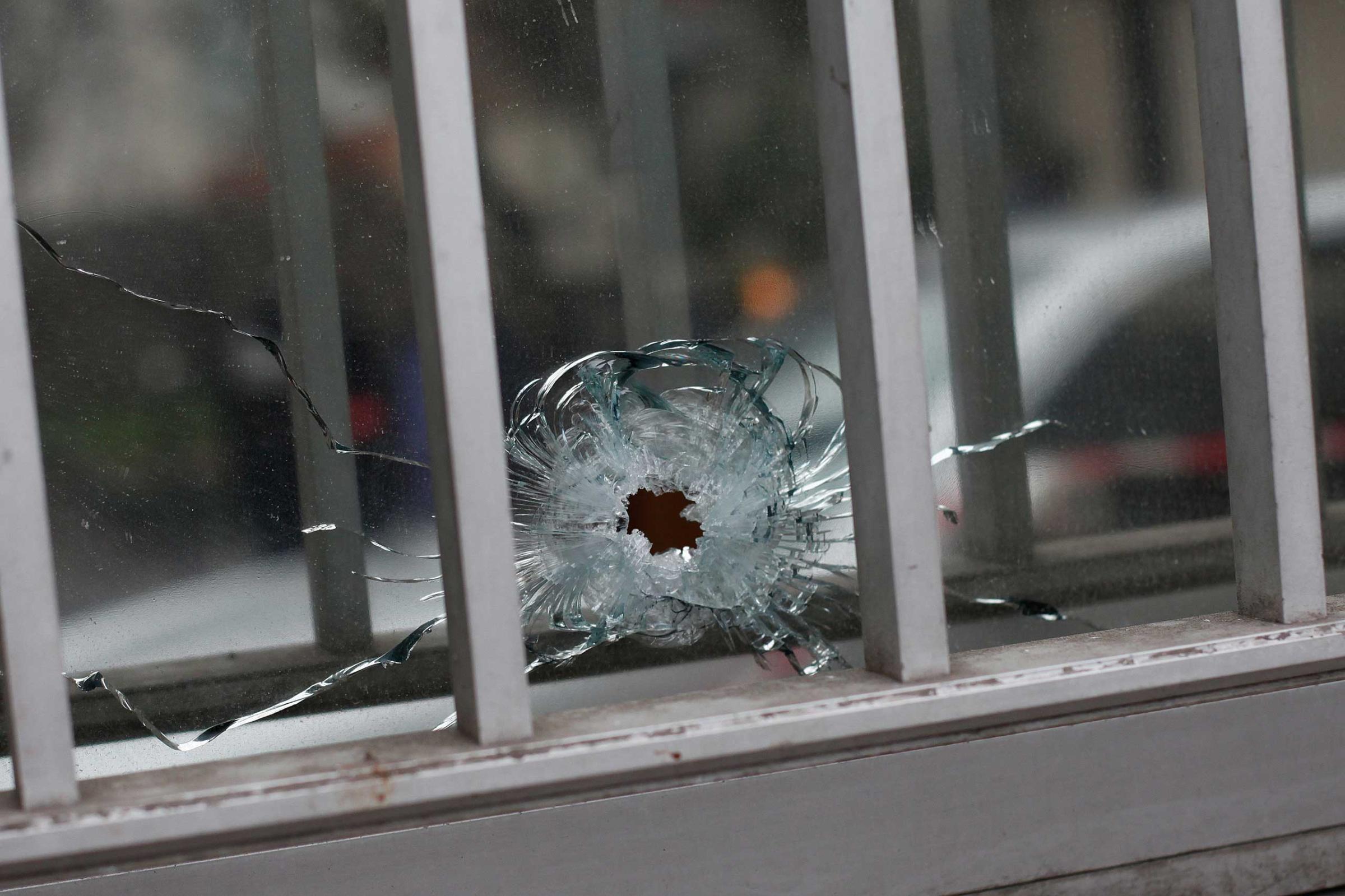
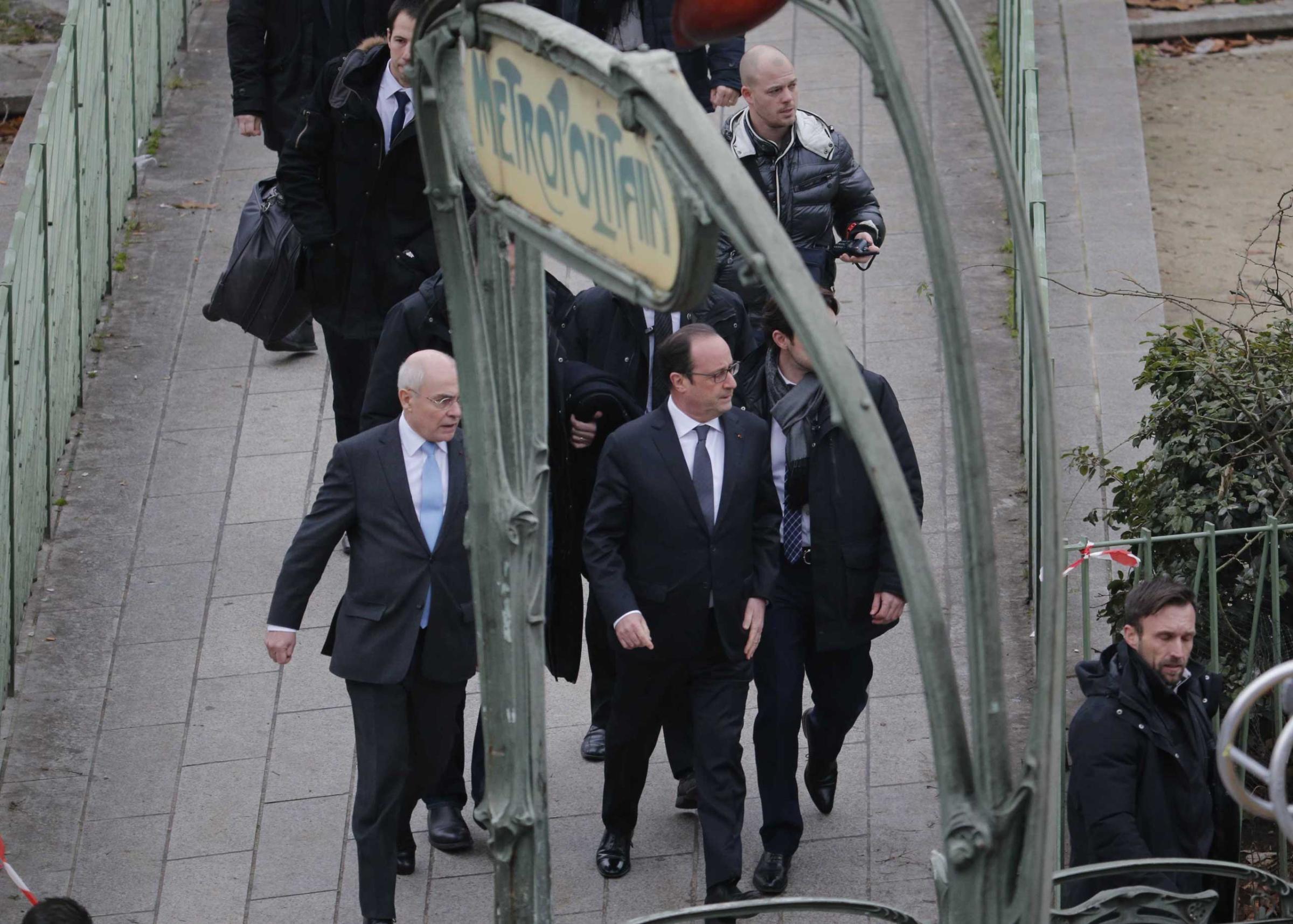
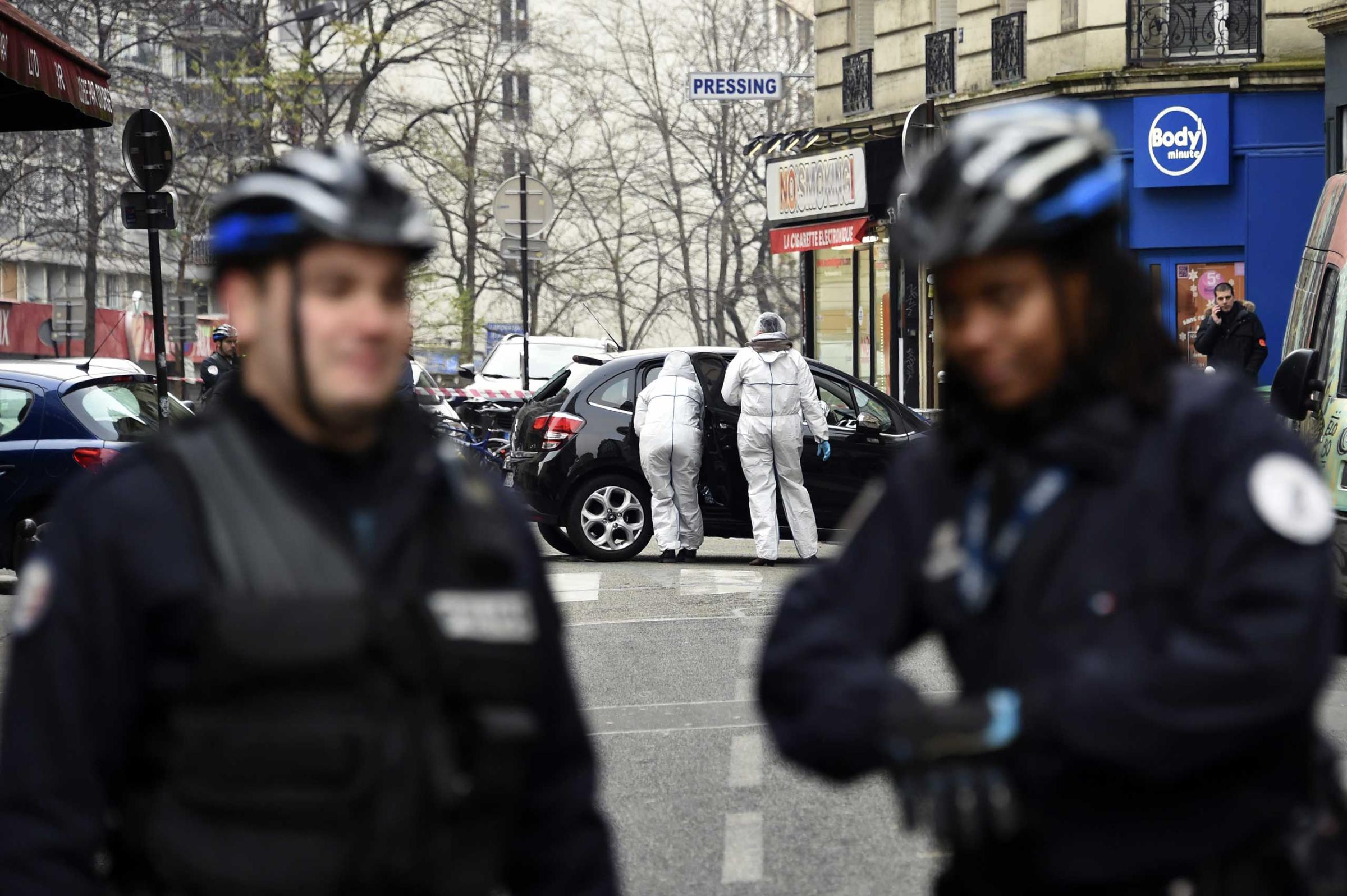
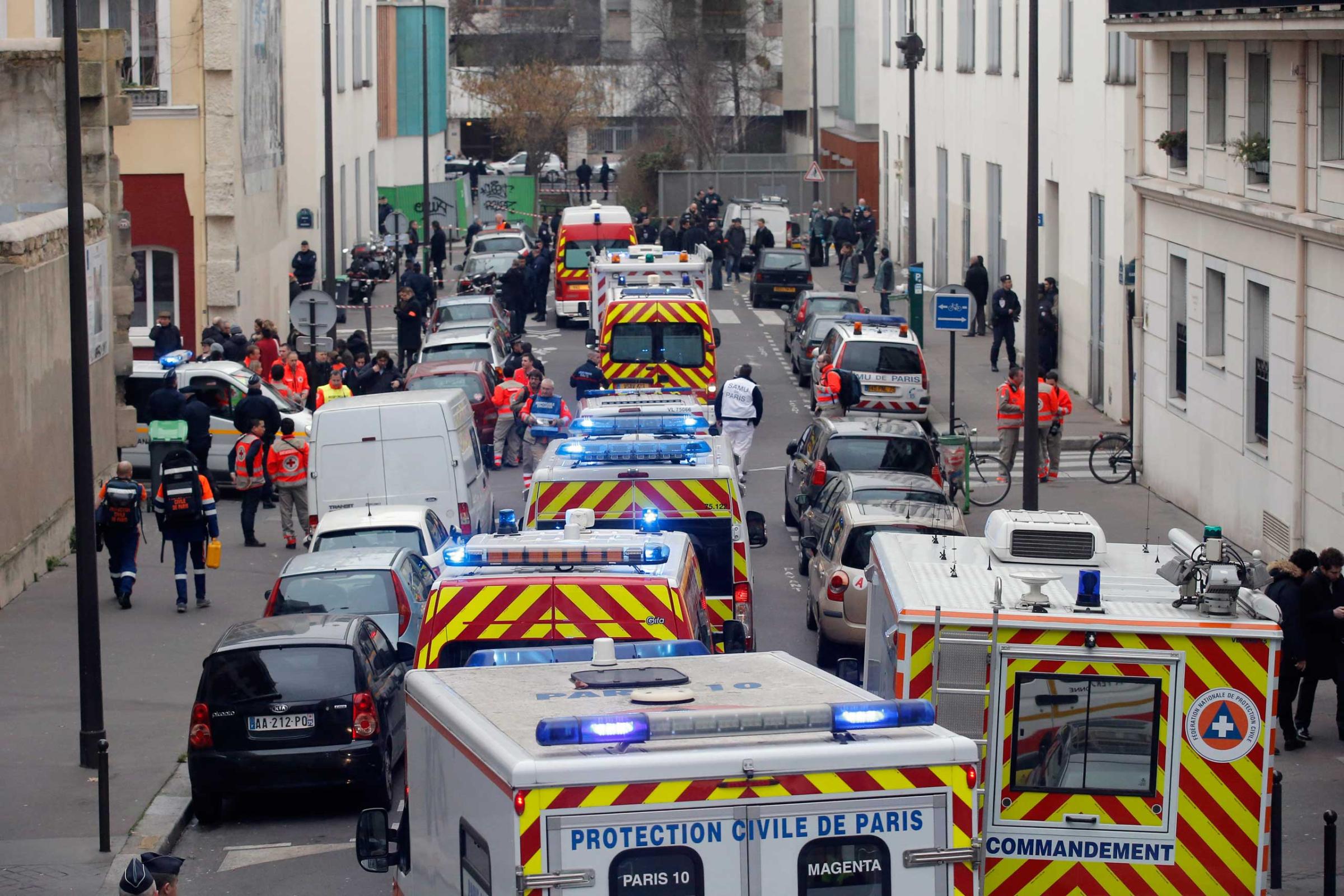
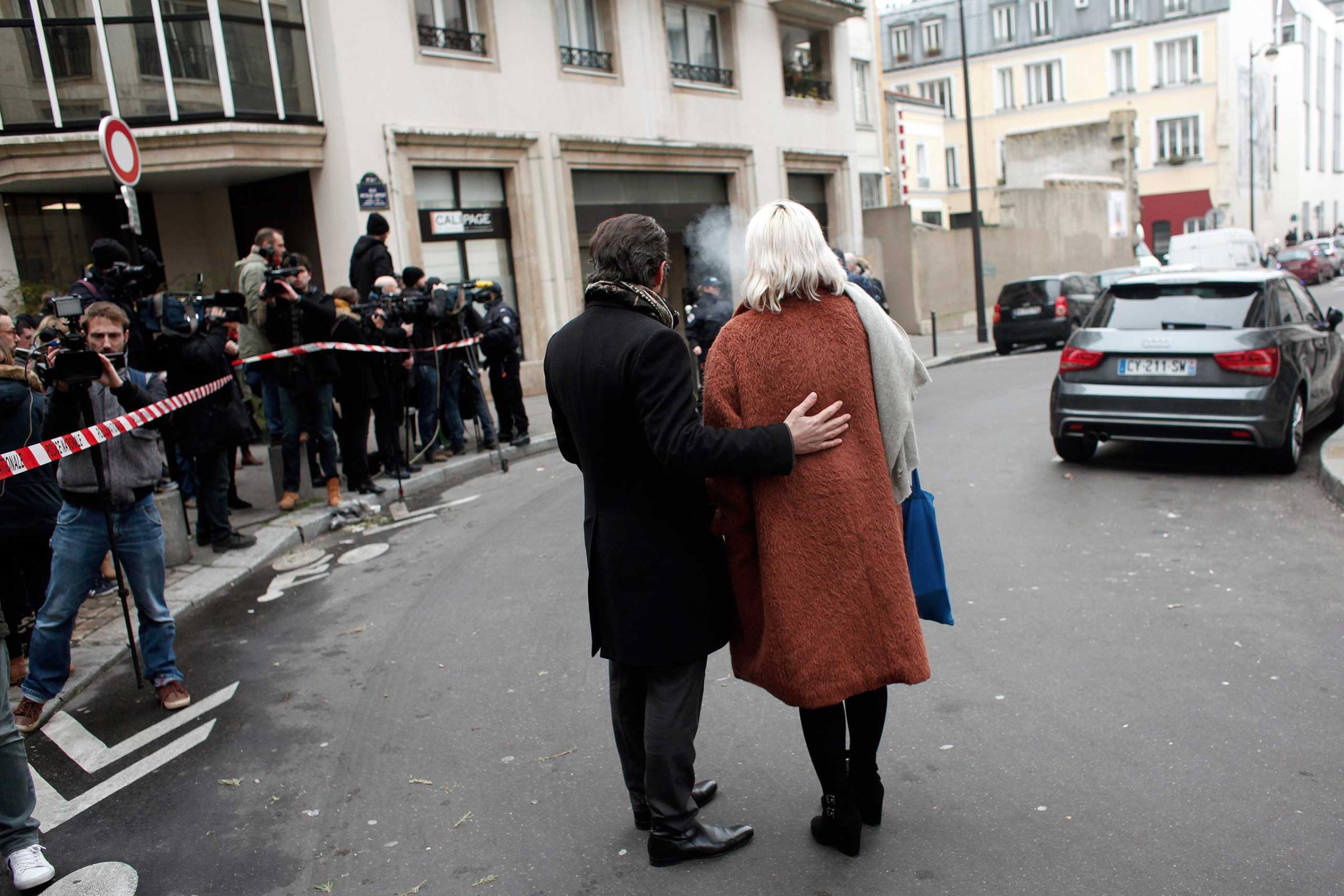
U.S. President Barack Obama also condemned the attack.
“For us to see the kind of cowardly, evil attacks that took place today reinforces once again why it’s so important for us to stand in solidarity with them just as they stand in solidarity with us,” Obama said from the White House. “Our thoughts and prayers are with the families of those who have lost their loved ones.”
Security cameras showed two men jumping out of a black car shortly before midday, wearing ski masks, with rifles cocked and ready as they arrived at the building.
Witnesses said the gunmen entered the offices with Kalashnikov rifles and deliberately looked for journalists to kill. In a video clip shot by a neighbor, one passerby appears between two cars parked along the side of the road as shots blast out, while another man shouts to him, “Get down! Get down!”
This was not the first attack on the newspaper. Conservative Islamists have railed against Charlie Hebdo since at least 2011, when it published a series of cartoons lampooning the Prophet Muhammad. The publication’s offices were soon after firebombed, in what Muslim groups said was a revenge attack for the cartoons. In November last year, another firebomb was lobbed at the building.
Islam is not the only sacred cow Charlie Hebdo has taken on, however. The magazine has made its name for decades breaking taboos of all kinds, and its current Twitter icon features a crude cartoon of Mother Mary giving birth to Jesus Christ.
Le Monde reported Wednesday that Stéphane Charbonnier (“Charb”), the Charlie Hebdo cartoonist who was on al-Qaeda’s most-wanted list in 2013, had been killed. The paper’s editor in chief Gerard Biard was reportedly in London at the time of the attack.
Terrorism experts quickly pointed to the gunmen’s apparent professionalism. “They were well equipped, they had military weapons, they had probably bulletproof jackets,” terrorism consultant Jean-Charles Brisard told the BBC. “These individuals were well trained. This is probably the worst experience in France in the last 30 years.”
Last year attackers stormed the center-left newspaper Libération, seriously wounding one journalist and injuring several others.
Front Pages React to Paris Terror Attack
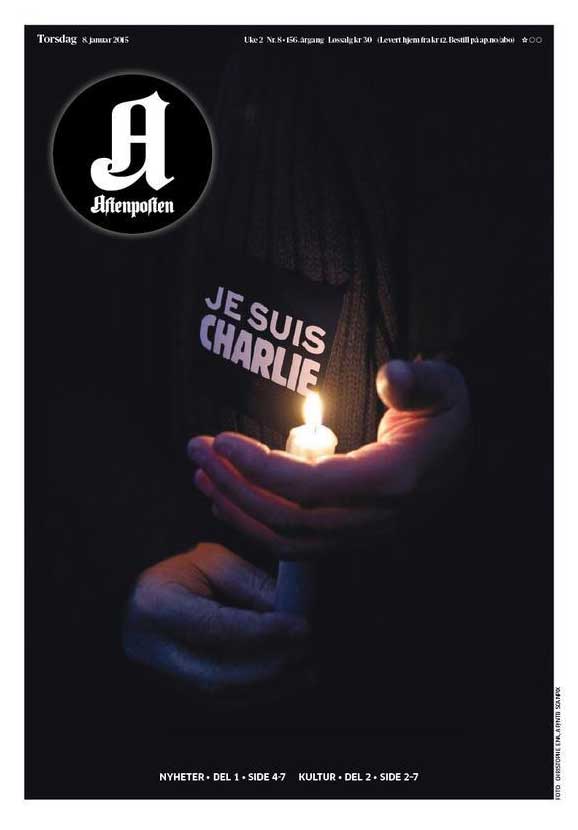
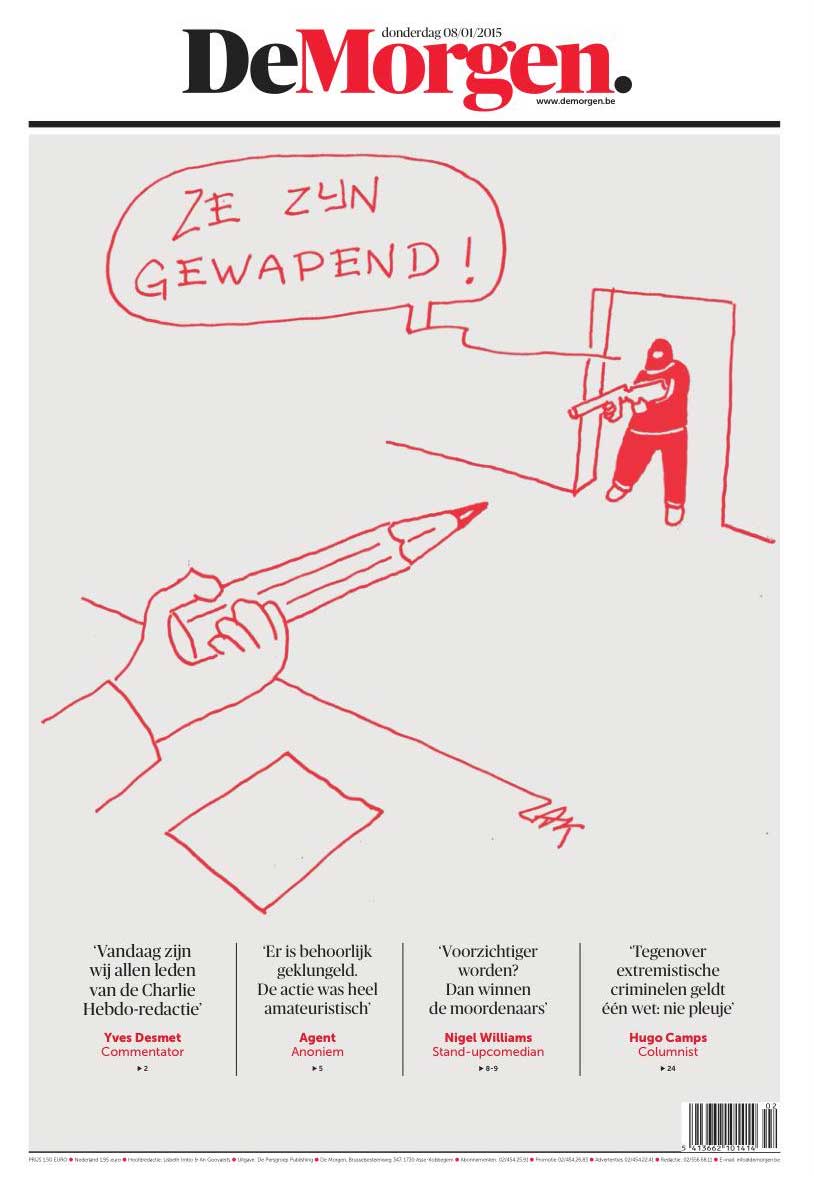
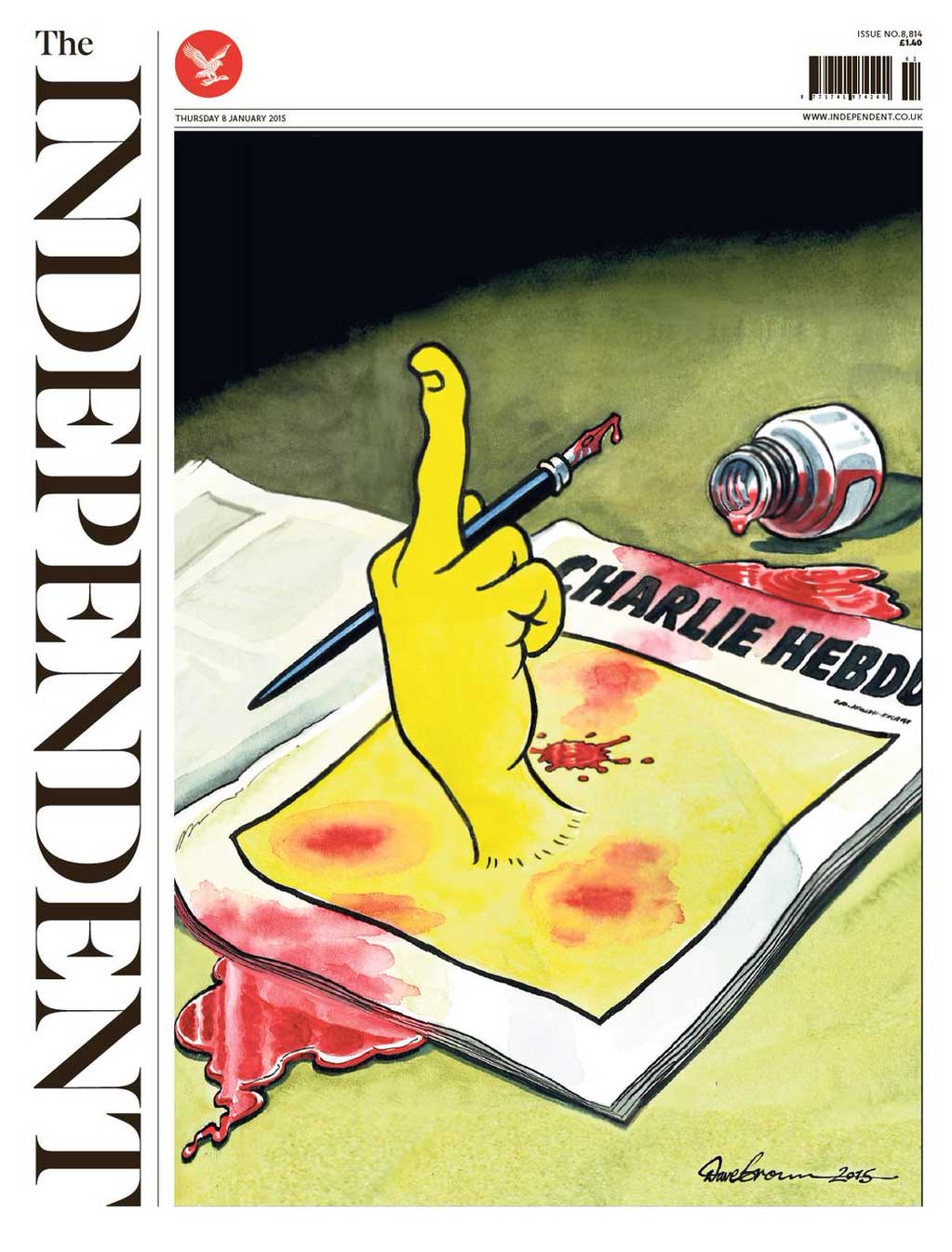
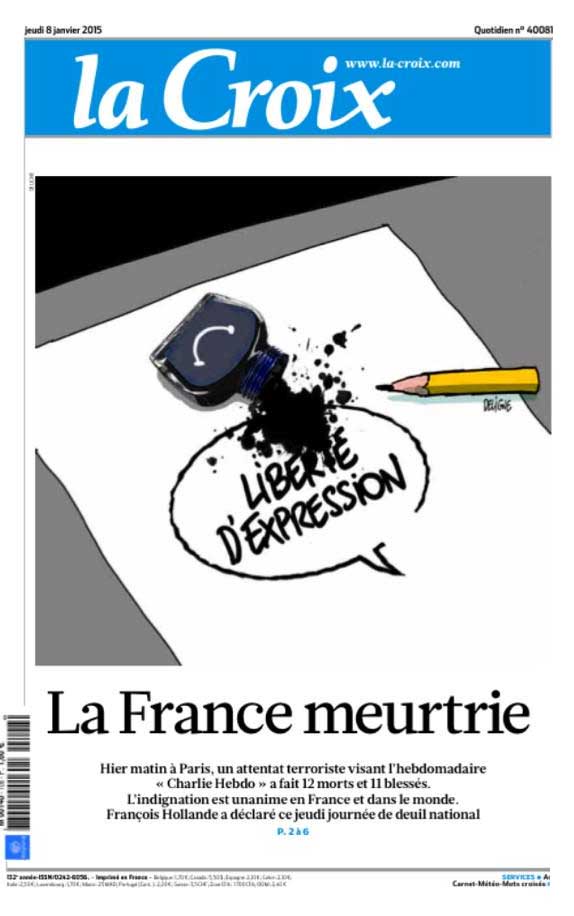
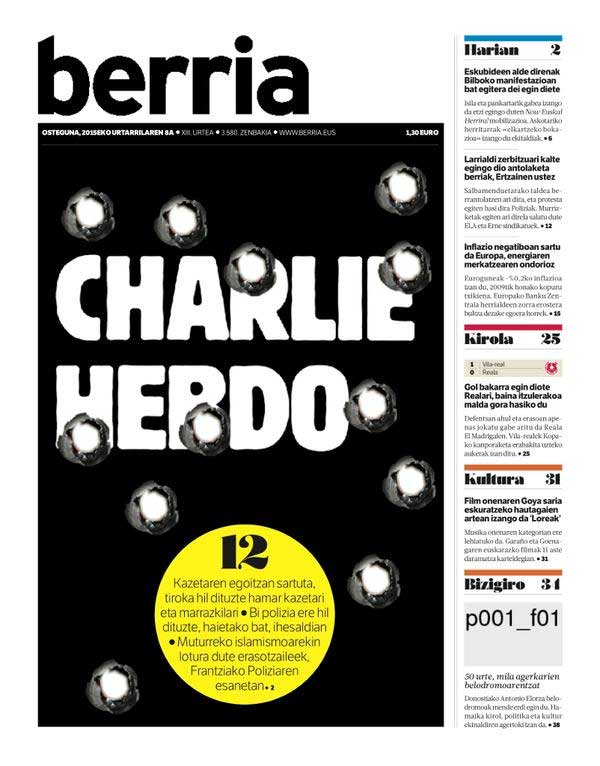
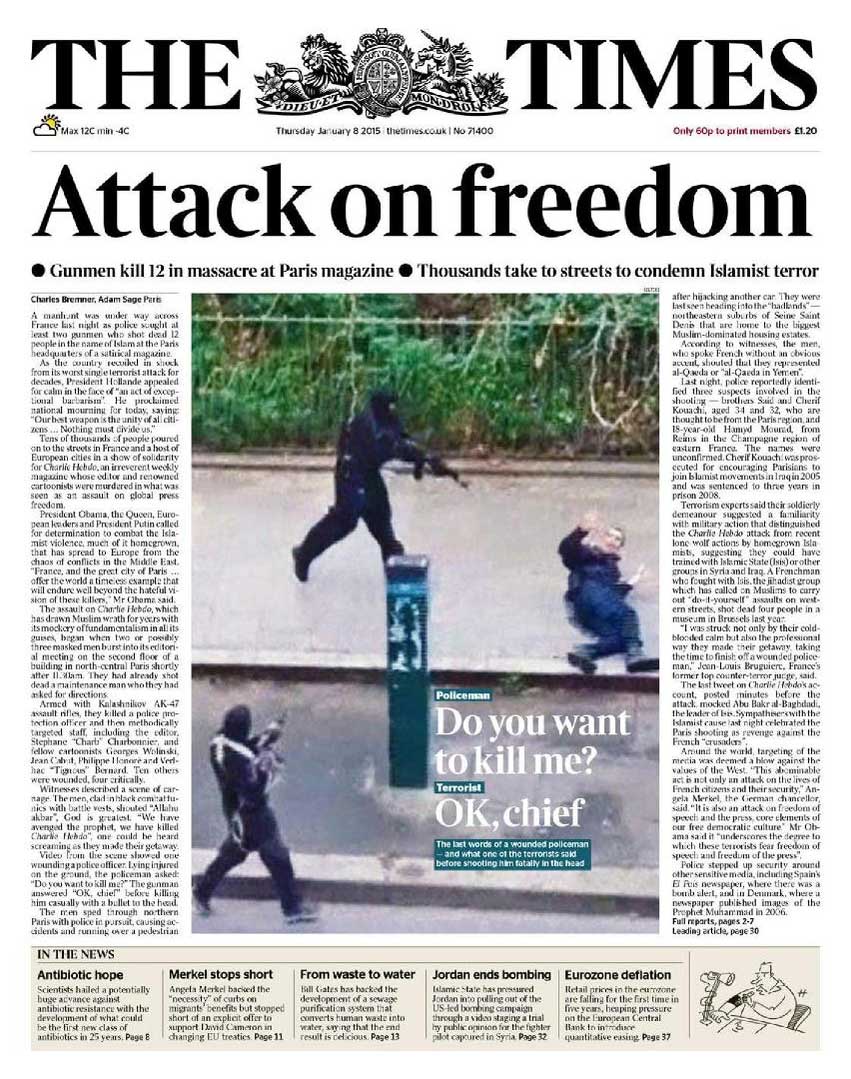
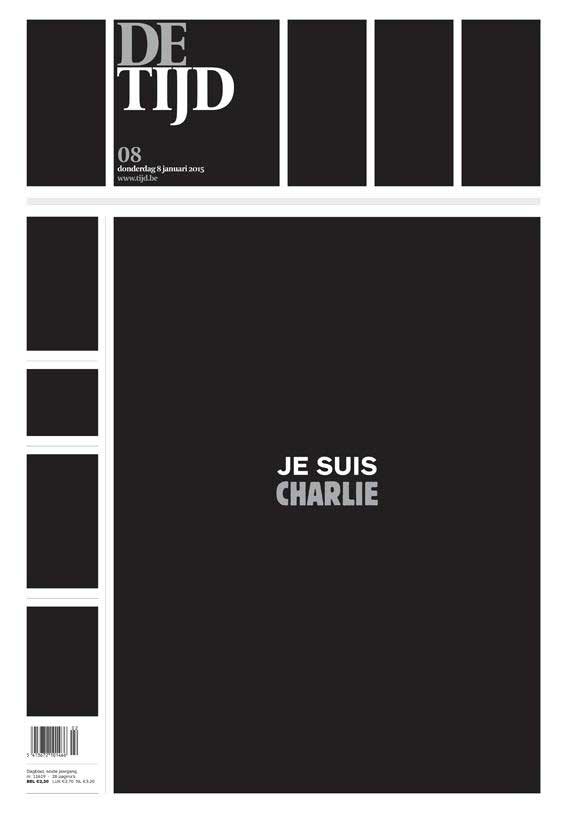
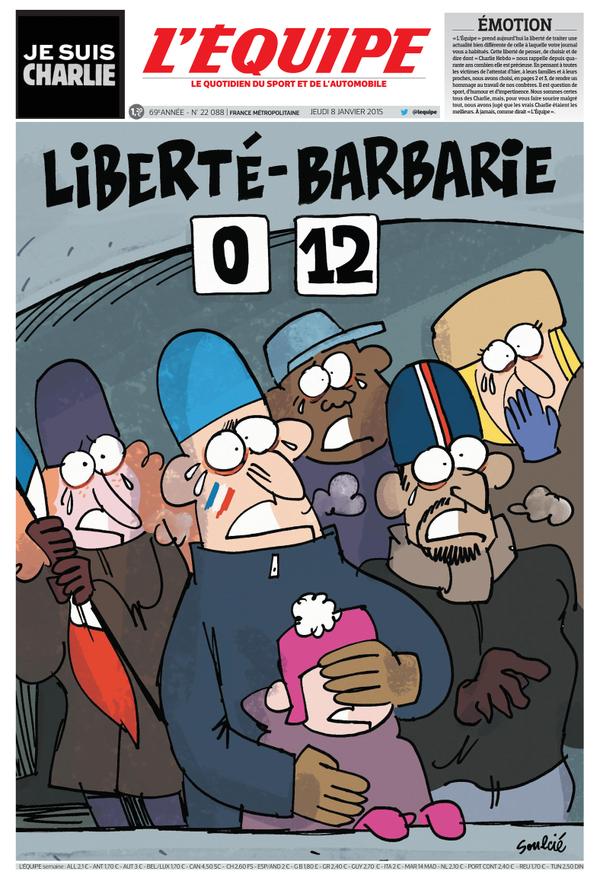
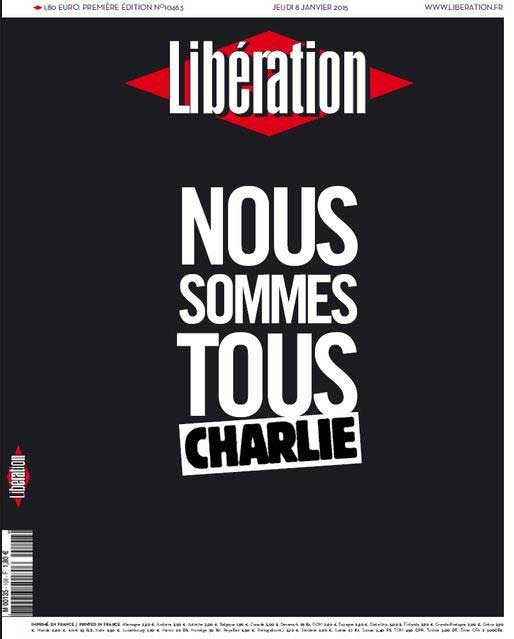
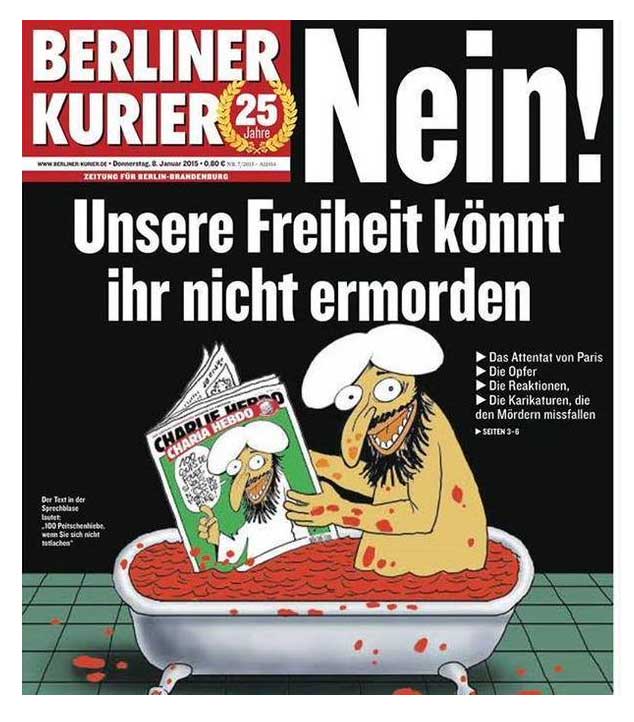
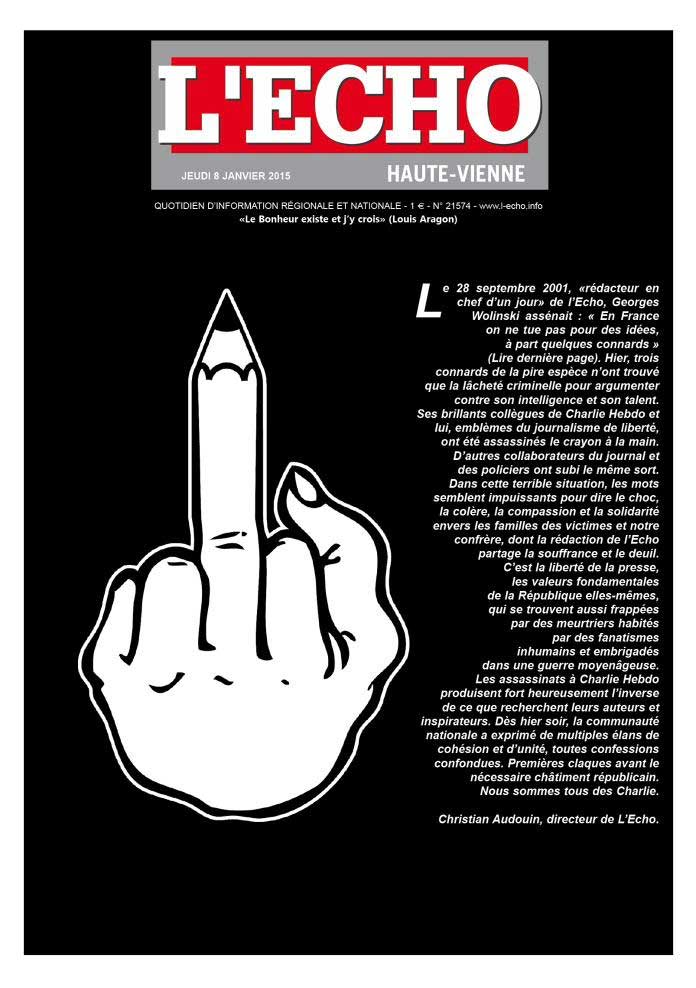
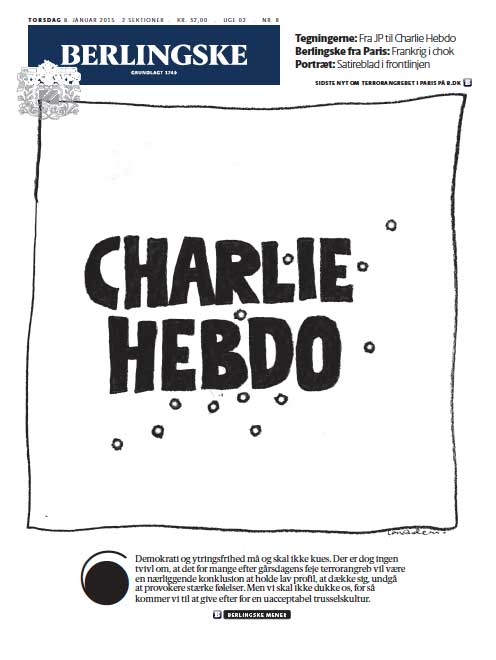
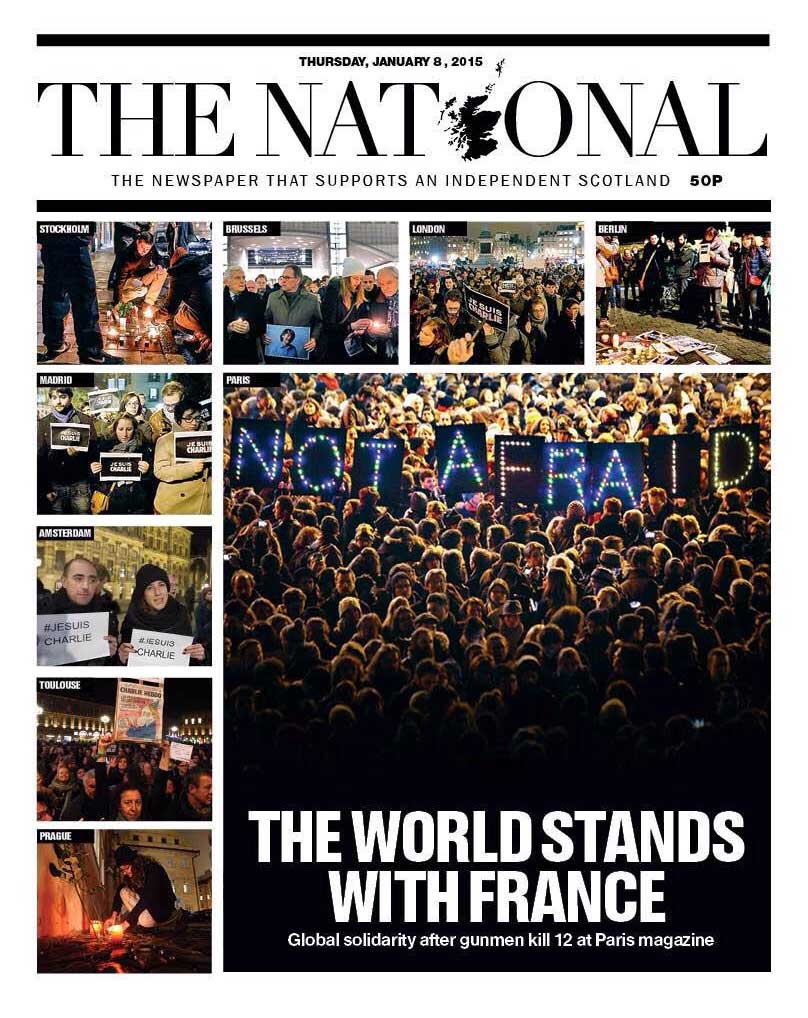
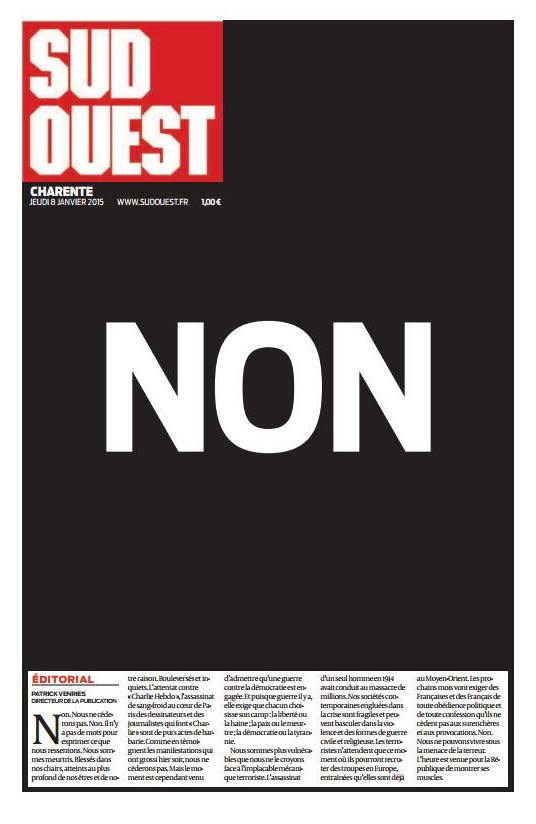
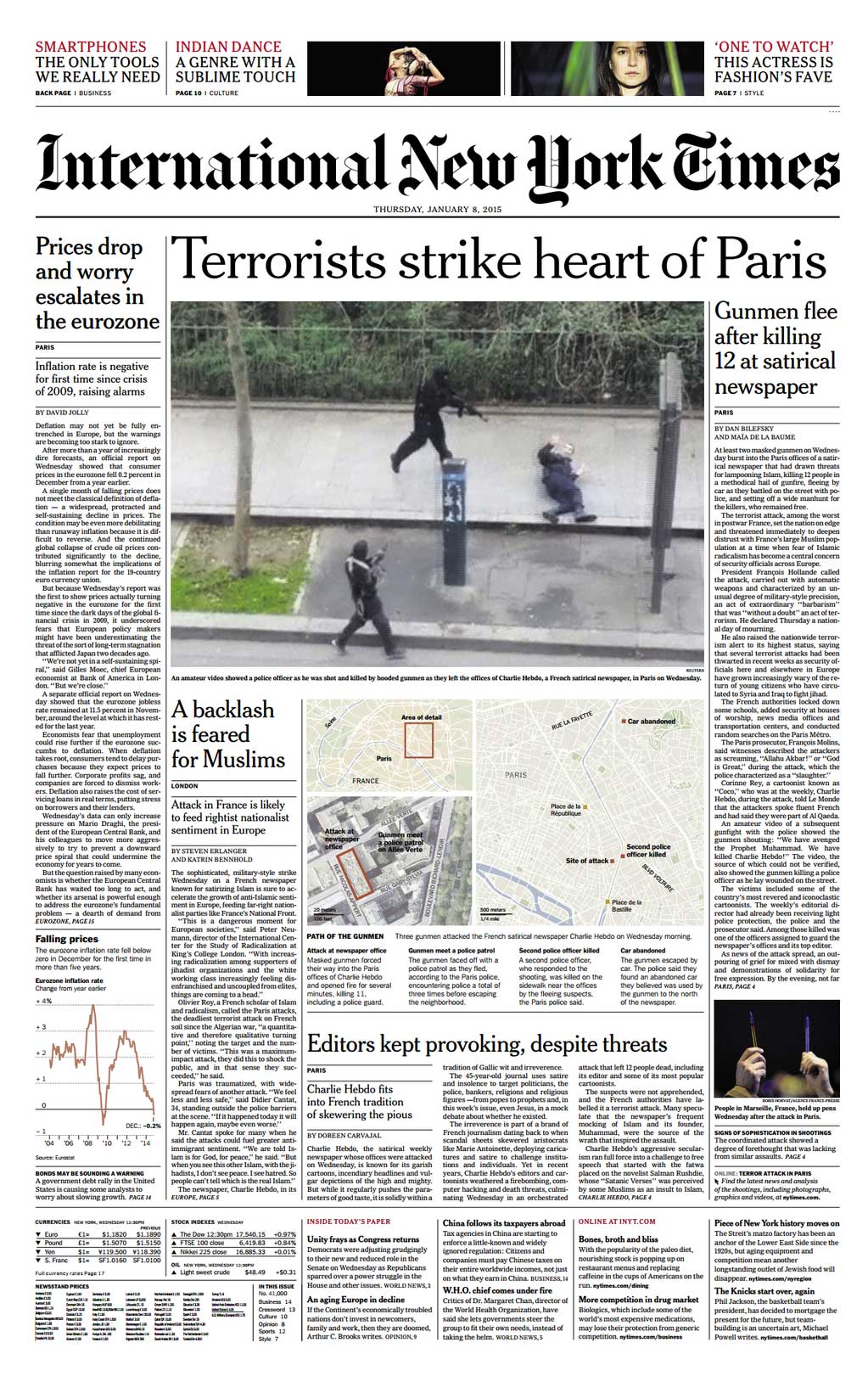
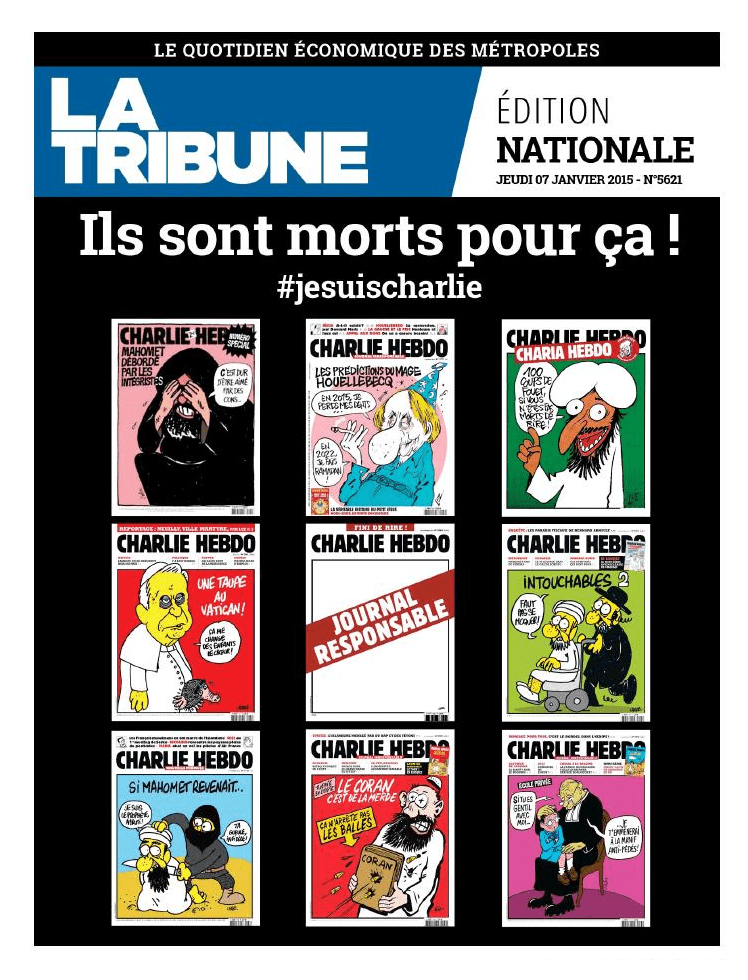
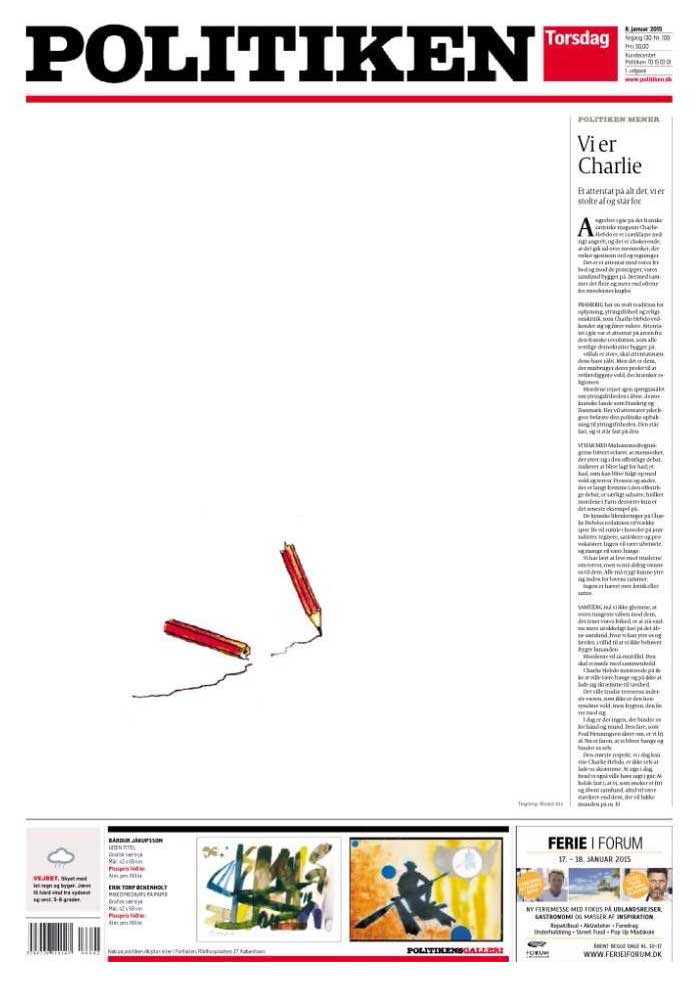
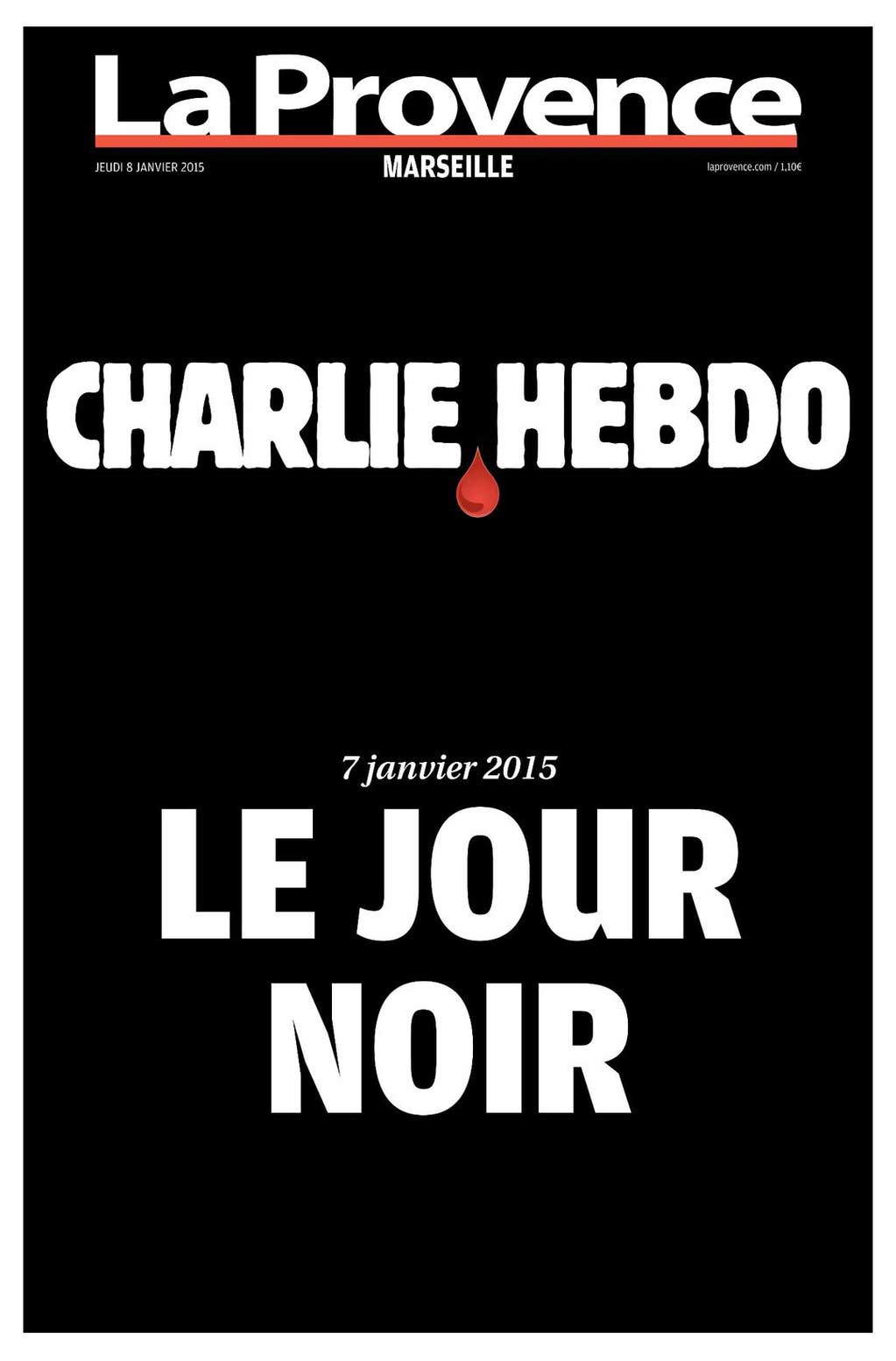
Left unclear was how the gunmen had penetrated the newspaper’s security system on Wednesday, in the middle of a crowded area of Paris. The district is a mixed residential and commercial area, and one of the most crowded in the capital.
That apparent lapse could well deepen anxieties within Hollande’s government that the country is highly vulnerable to terrorist attacks, despite its large police force. Hollande quickly increased the country’s security-threat level to its highest level and called an emergency cabinet meeting to discuss the government’s response. Under the new threat level, French media organizations, public transportation and public buildings are required to reinforce their security.
The government hopes that will be enough. But for weeks French officials have dreaded terrorist attacks, especially as some of the young French jihadists filter back home from the Syrian conflict. French police believe about 1,200 French citizens have fought in Syria since nearly four years of war there, as jihadist groups have tapped into a groundswell of militancy and disaffection among some of the country’s 7 million Muslims — Europe’s biggest Muslim population.
Read next: World Leaders Condemn Attack on Charlie Hebdo
More Must-Reads from TIME
- Inside Elon Musk’s War on Washington
- Meet the 2025 Women of the Year
- The Harsh Truth About Disability Inclusion
- Why Do More Young Adults Have Cancer?
- Colman Domingo Leads With Radical Love
- How to Get Better at Doing Things Alone
- Cecily Strong on Goober the Clown
- Column: The Rise of America’s Broligarchy
Contact us at letters@time.com